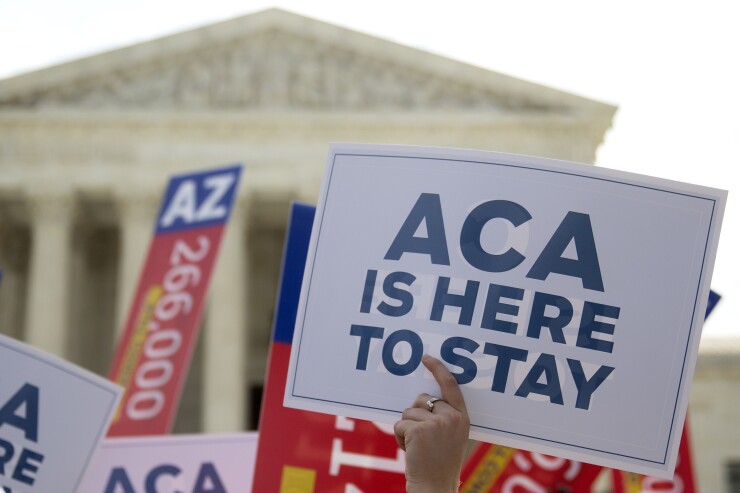Lost amid the confusion of the federal government shutdown this year was a new set of penalties the IRS began to issue as part of the agency’s ongoing enforcement of the Affordable Care Act.
In the final days of 2018, the agency started issuing notices to assess penalties against employers that failed to file Forms 1094-C and 1095-C with the IRS or to furnish 1095-C forms to employees under IRC Sections 6721 and 6722 for the 2015 or 2016 tax year. These penalties are separate from the IRC Section 4980H penalties for failing to offer the required healthcare coverage.
It appears the IRS is calculating these IRC 6721 and 6722 penalty assessments for certain employers based on the number of W-2s the employers filed with the IRS. These IRC 6721/6722 penalty assessments are proposed using Letter 5005-A and Form 886-A.

This penalty assessment process is a follow-up to Letter 5699. The IRS sends Letter 5699 to employers that did not file any ACA information returns (i.e., 1094-C/1095-C schedules) for a reporting year. The employer must, in essence, respond to (1) confirm the name the employer used when filing its ACA information returns and identification information for tracking, (2) provide the ACA information returns or indicate when they will be submitted, or (3) explain why the employer is not an Applicable Large Employer, which is an employer with 50 or more full-time employees and full-time equivalent employees. Failure to respond to Letter 5699 or to take action to address any filing issues resulted in the penalty assessment being issued in Letter 5005-A/Form 886-A.
The penalties for failing to file and furnish are indexed each tax year. For the 2018 tax year, penalties for failing to file and furnish can be as much as $540 per return. The penalties for the 2016 tax year can be as much as $520 per return.
In the meantime, the IRS is continuing to issue penalties for noncompliance under IRC Section 4980H. Under the ACA’s employer mandate, ALEs are required to offer minimum essential coverage to at least 95 percent of their full-time workforce (and their dependents), whereby such coverage meets minimum value and is affordable for the employee or be subject to IRS 4980H penalties.
These penalties are included in Letter 226J, which the IRS is currently issuing for the 2016 tax year.
Why should accountants care? Employers receiving these penalty notices from the IRS are often shocked to see they are in the millions of dollars. While some of the Letter 226J notices for the 2015 tax year were more easily addressed in view of the significant transition relief accorded to employers for compliance, the new round of penalties, both for IRC 4980H and IRC 6721/6722, is more challenging. In addition, for 2016 and subsequent tax-reporting years, as the IRS staff becomes more experienced handling the ACA information returns (or lack thereof), there is less leniency toward employers who fail to accurately and completely provide their ACA information returns.
Employers should consider undergoing an ACA penalty risk assessment to determine if they are at risk of receiving IRS penalties. Some outside experts may offer to undertake this assessment at no cost. Such a review can reap dividends by helping employers avoid significant ACA penalties from the IRS.
Accountants also may want to determine if these employers have indeed been filing the required ACA information returns annually with the IRS. If the employers have not, they may need to work with their accountants to ensure these organizations file this information as soon as possible to avoid receiving an IRS penalty notice and to minimize potential penalties.
It’s time for those employers that have buried their heads in the sand about the ACA in hopes the health care law would disappear to take a serious look at that ill-advised strategy. We see every day how serious the IRS is taking the responsibility of enforcing the ACA.





